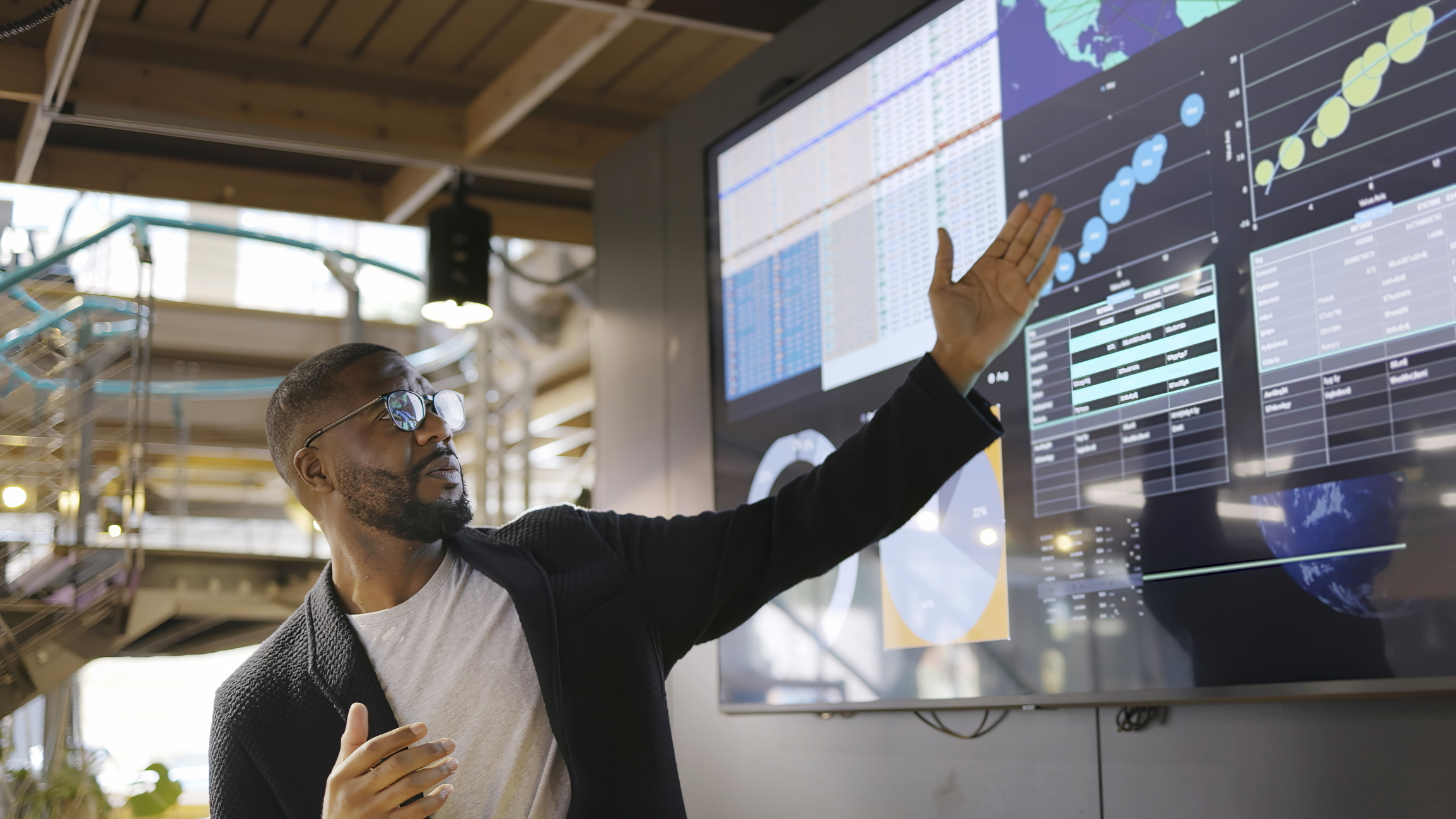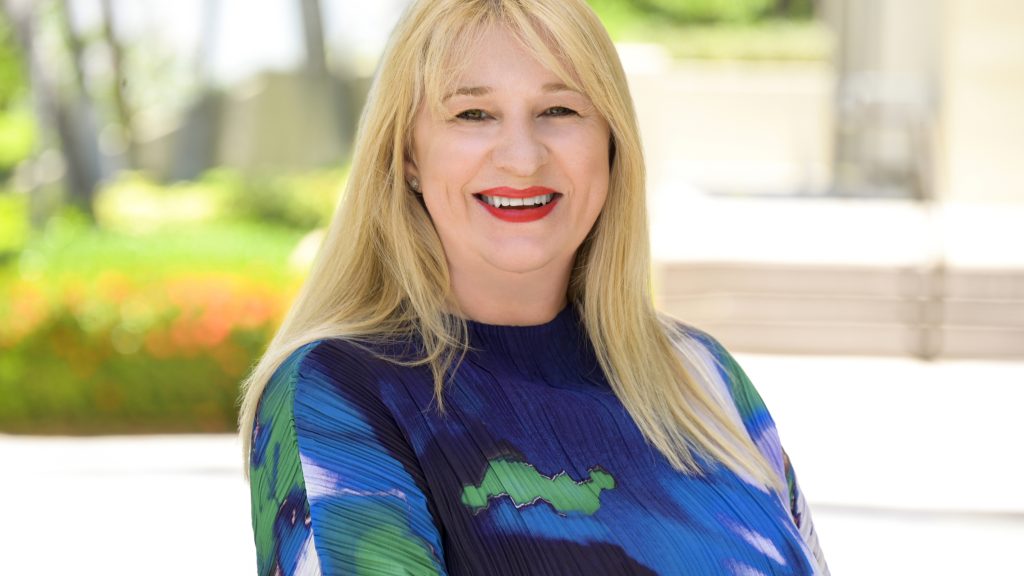AI and auditing: A conversation with Bettina Cassegrain and Dr Daniel Susskind

HLB Executives gathered recently for the annual HLB Global Summit to delve into the most pressing issues of the business today, from technology and corporate governance to the frontiers of innovation, growth, leadership, and the ever-evolving landscape of artificial intelligence.
Dr. Daniel Susskind is an economist and author specialising in the relationship between technology, particularly artificial intelligence (AI), and its profound impacts on the landscape of work and society.
Amidst the dynamic atmosphere of the HLB Global Summit in Osaka, Japan, Dr. Susskind spoke with HLB Technical Director & Global Assurance Leader, Bettina Cassegrain, on the implications, challenges, and opportunities arising from the integration of artificial intelligence into auditing and other professional services.
The world is changing, fast
Reflecting on the evolution of attitudes over the years, Dr. Susskind emphasised a marked shift from 2014-2015, the time when he published his first book, "The Future of the Professions." In this book, he explored the impact of AI on traditional professions like law, medicine, and accounting.
Noting a distinct change in professionals' perspectives on technology, he traces the journey from initial uncertainty about its importance to the present, where we see a significant rise in professionals' readiness to adopt it compared to the recent past.
In contrast to the conservatism, suspicion, and scepticism of the past, the approach has matured into a dialogue focused on actively addressing questions about the ethical implications and economic consequences of AI and automation.
Challenges and opportunities
A recurring theme in discussions about AI often revolves around the prevalent narrative that AI poses a significant risk of mass unemployment. However, according to Dr. Susskind, the genuine threat is not widespread unemployment or the complete takeover of jobs by robots.
Instead, the challenge lies in the necessity for professionals to take on significantly different tasks and activities within their roles as emerging technologies advance. The real challenge, therefore, lies in the transformation of professions, requiring a shift in skills and capabilities.
However, there is often a skill disparity between the current state of play and the evolving requirements for the future. Dr. Susskind says this skills gap underscores the gravity of the situation and the need for a comprehensive reevaluation of training methodologies.
Still, amidst these challenges, Dr. Susskind highlighted an opportunity to make professional expertise more affordable and accessible to a broader audience.
Here, he suggests stepping away from the traditional role of professionals or service providers, particularly in areas like education and healthcare, and adopting the perspective of the typical client or customer instead. He goes on to note that many individuals and smaller businesses currently lack adequate access to these vital services.
The motivation behind writing "The Future of the Professions" was driven by the recognition of this disparity and the potential impact of emerging technologies in democratising access to expertise, making it more affordable and readily available.
When viewed from the standpoint of customers and clients, the technological changes ahead are filled with promise and excitement.
Evolving skills and competencies
Delving into the specifics of evolving skills, Dr. Susskind highlighted two key strategies.
Professionals, he believes, must either excel in tasks that technology cannot replicate, such as those requiring interpersonal communication, problem-solving, creativity, or judgment, or they should actively engage in building and operating the very technologies that are reshaping their fields.
In the midst of this dichotomy between traditional training methods and the rapidly changing demands of the industry, the current practices often prove insufficient in adequately equipping the workforce for this dual challenge.
Trust, reliability, and ethical considerations
As the discussion transitioned to the critical issues of trust and reliability in the profession, Dr. Susskind proposed that, beyond trust, what people actually seek is reliability – the assurance that tasks will be completed as expected.
While acknowledging the substantial ethical concerns surrounding technology, he also stressed that the failure in the professions is often more technical than ethical.
“I think often what people want is actually slightly weaker than trust – it is actually reliability. What they want, whether it's accounts done efficiently or a legal problem resolved swiftly or a medical problem diagnosed accurately, is often for the task to be done as expected”, Dr. Susskind explains.
“I think one of the reasons that people have lost faith in the professions is because they have proven to be not simply untrustworthy but also unreliable. They aren't solving the problems they are meant to solve as expected”, he concluded, underscoring the imperative to address both technical and ethical aspects to restore confidence in professional services.
Role of education
As the conversation shifted to the role of education, Dr. Susskind highlighted the essential role educational institutions must play.
Although not immune to technological advancements, the educational system has remained unchanged for a century – a traditional classroom looks the same today as it did 100 years ago.
These key institutions need a fundamental rethinking, not only of what skills and capabilities they provide but also how and when they do it, and at what moment in people's lives.
Here, the call for flexibility, a willingness to retrain and reskill later in life, emerged as a critical response to the uncertainties of the job market.
Debunking automation myths
Addressing myths surrounding the future of the professions, Dr. Susskind debunked the notion that automation merely copies human tasks.
“There's often a sense that the only way to automate a task is to copy the way that a human professional performs a task. The only way to make a medical diagnosis is to get a machine to try and copy the kind of judgment that a doctor exhibits or the only way to come up with a novel legal argument is to try and copy the way that a creative lawyer might think”, he said.
But rather than just mimicking human thinking, technology allows tasks requiring human qualities to be performed in a completely different way, expanding the realm of possibilities.
A positive outlook for the Profession
Dr. Susskind's insights at the HLB Global Summit presented a challenging yet exciting future for auditing and other professional services.
The overarching message was one of optimism, challenging professionals to embrace new skills and capabilities while assuring that the future involves mass redeployment rather than mass unemployment.
“For now, the challenge is not a world without work full stop. It's a challenge where there is work. But in part because people might not have the right skills, that work might sit out of reach," Dr. Susskind finishes.
"So it's a serious problem and it's a serious challenge, but it's one that I think we can rise to”.
Related content






